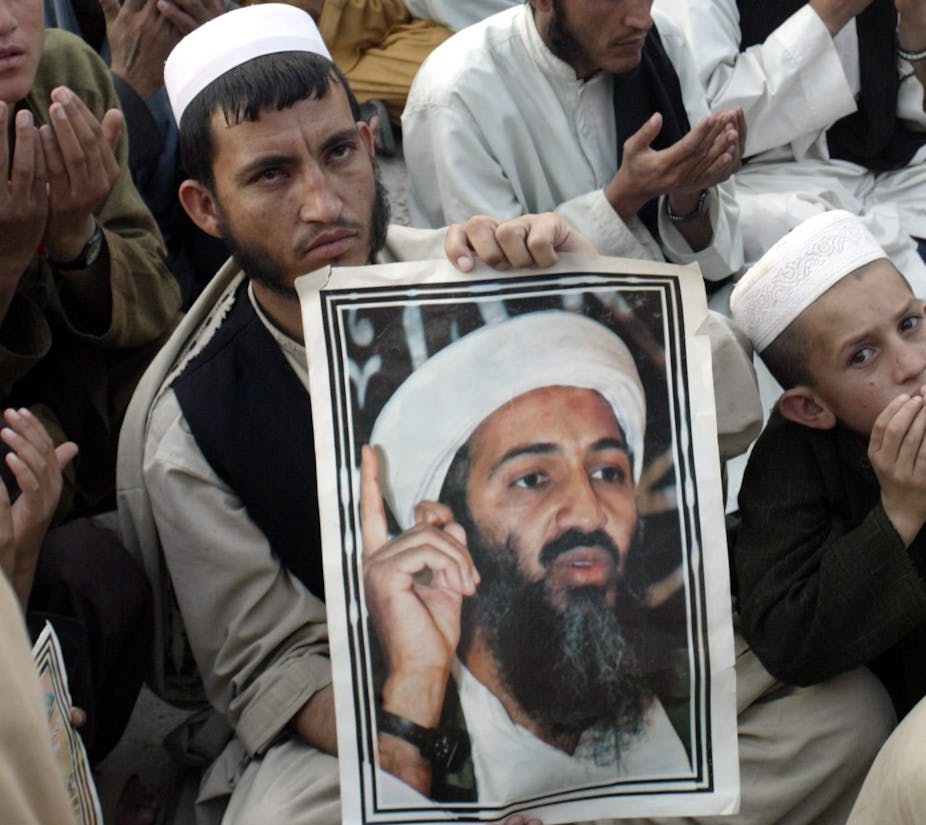We’ve been reminded this month of the United States’ success in finally finding Osama bin Laden. But one thing missing in the media coverage was the allegation that the CIA established a fake hepatitis B vaccination campaign in Pakistan to help apprehend its most wanted man.
In July 2011, The Guardian newspaper reported that CIA agents had recruited Shakil Afridi, a Pakistani doctor, to organise a vaccine drive in Abbottabad where officials believed bin Laden was located. The article alleged the true objective of the drive was to obtain DNA from those suspected of harbouring bin Laden, which could then be compared with the DNA of his deceased sister to prove the family lived in the area.
The CIA was apparently aware that polio drops had previously been given to children in bin Laden’s compound.
The vaccination campaign commenced in a nearby village and moved to Bin Laden’s area a month later. The move coincided with when the second vaccination dose would normally have been given to the original recipients. It is reported that the nurse who obtained entry to the bin Laden compound was instructed to carry in an electronic device, although the nature of the device and whether it was actually left behind remains unclear.
The CIA initially refused to comment on these allegations, but Defense Secretary Leon E. Panetta later confirmed that a Pakistani doctor imprisoned by Pakistan’s intelligence service had, in fact, been collecting intelligence in Abbottabad.

It’s not known if the immunisation program was a fake. But irrespective of whether such rumours are true, we know that these types of rumours have potential to hamper vaccination campaigns in developing countries. More importantly, such rumours can harm perceptions of public health and development aid efforts on a global scale.
Prominent aid agencies, including Save the Children and the International Committee of the Red Cross, withdraw staff and shut down offices in the country in the aftermath of the campaign. The doctor involved in the suspect vaccination campaign apparently claimed that he worked for Save the Children, which prompted the Pakistani government to investigate the agency.
The impact of this incident is reminiscent of an episode in Nigeria in 2003, when rumours spread by government officials and religious leaders in the north of the state effectively derailed an otherwise successful polio vaccination drive.
Local leaders led the boycott of the immunisation program because of fears the vaccine contained birth-control drugs, purportedly administered by Western agencies to reduce the growth of Muslim populations.
Although the boycott ended after 11 months and education programs were established to combat fears, many continued to refuse the vaccination. This represented a significant setback to global efforts to eradicate polio because Nigeria accounted for 45% of polio cases worldwide and 80% of polio cases in Africa at that time.

Pakistan is also one of the four countries representing a significant reservoir for continued polio infection. Unfortunately, there are suggestions that Pakistan’s polio eradication campaign has suffered from a widespread backlash against vaccination; the World Health Organisation (WHO) has even clarified that its polio campaign is in no way associated with Dr Shakil Afridi’s.
Public trust is an essential element of any well-designed public health intervention. But if accusations like these are proven, public health will lose out to political imperatives. And they raise the question of whether it is ever ethically permissible to collect information relevant to national or international security under the guise of a public health program.
Sadly, these examples represent just a small part of a disturbing picture emerging worldwide – state actors are increasingly using medical services to achieve political outcomes.
There are multiple examples of medicine being used as a weapon of persecution throughout the course of the Arab Spring: particularly, in Bahrain and Syria. Not only are health-care facilities not neutral; it has even been alleged that some doctors complicit with oppressive regimes have engaged in torture of patients under their care.
Such use of medicine as a weapon of persecution has been decried worldwide by aid and public health agencies, such as Medicines Sans Frontieres.

No doubt the CIA would be keen to distance its behaviour from this broad pattern of conduct, but their actions raise questions about the slippery slope once medical and public health services and programs are used for nefarious purposes.
In any event, it’s clear that the CIA’s actions in commencing an immunisation program in a genuinely needy population and then failing to administer all three doses required to ensure efficacy is medically and ethically questionable.
Acknowledgement: Kyra-Bae Snell and Jenny Jamieson contributed to this article.

